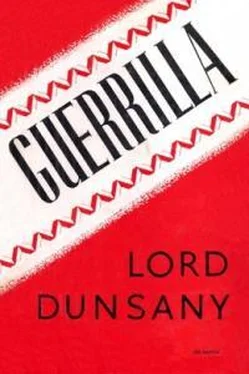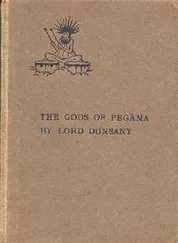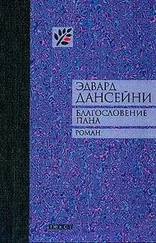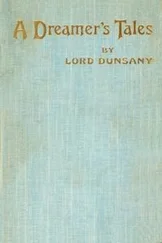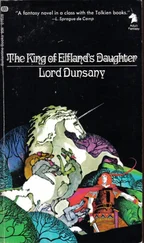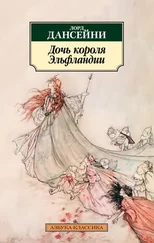Лорд Дансейни - Guerrilla
Здесь есть возможность читать онлайн «Лорд Дансейни - Guerrilla» весь текст электронной книги совершенно бесплатно (целиком полную версию без сокращений). В некоторых случаях можно слушать аудио, скачать через торрент в формате fb2 и присутствует краткое содержание. Год выпуска: 2015, Издательство: epubBooks Classics, Жанр: Прочие приключения, на английском языке. Описание произведения, (предисловие) а так же отзывы посетителей доступны на портале библиотеки ЛибКат.
- Название:Guerrilla
- Автор:
- Издательство:epubBooks Classics
- Жанр:
- Год:2015
- ISBN:нет данных
- Рейтинг книги:5 / 5. Голосов: 1
-
Избранное:Добавить в избранное
- Отзывы:
-
Ваша оценка:
- 100
- 1
- 2
- 3
- 4
- 5
Guerrilla: краткое содержание, описание и аннотация
Предлагаем к чтению аннотацию, описание, краткое содержание или предисловие (зависит от того, что написал сам автор книги «Guerrilla»). Если вы не нашли необходимую информацию о книге — напишите в комментариях, мы постараемся отыскать её.
Guerrilla — читать онлайн бесплатно полную книгу (весь текст) целиком
Ниже представлен текст книги, разбитый по страницам. Система сохранения места последней прочитанной страницы, позволяет с удобством читать онлайн бесплатно книгу «Guerrilla», без необходимости каждый раз заново искать на чём Вы остановились. Поставьте закладку, и сможете в любой момент перейти на страницу, на которой закончили чтение.
Интервал:
Закладка:
He left the door and continued his journey, and the night seemed more than ever his friend. Then the silence was broken again, this time by a voice, a high voice calling incoherently, somebody singing. The singer was coming towards him out of the distance and dark: it was a drunken man. For a moment Srebnitz was astonished at any sound of festivity in that fallen city; then he realised that it was some poor devil trying to drown the sorrow of Europe in a glass of wine. He came down the street the way the patrol had gone, and Srebnitz heard, as he came nearer, the ruins of songs of his country. He stood still as the man passed him on the other side of the street, so that the man should not hear him and shout to him. And away the wild singing went, sending up fragments of the songs of The Land into the lonely night. For a long while he heard him; then a volley from two or three rifles, and all was quiet.
He heard the sound of more men coming behind him, but that did not trouble him, because he was near the first sentry now and the time was come for him to leave the wide street and turn up to his right, and then soon to his left and to his left again, which would bring him back to the street that he was in, and close to the further sentry. He turned to his right and passed by little gardens, where trees leaned their dark heads out over the railings, trees that seemed friendly to Srebnitz, and free, trees that had never said Heil Hitler : freedom was gone from men in The Land, but it seemed still to linger among these leaves.
When he came to his next turning he paused, to hear how far the marching feet had got. If they should turn from the main road where he had turned he would have to make fresh plans, but they went on straight past the turning. Then he turned to his left and was about level with them. As he turned to his left again, he heard them marching on up the wide road, past the far end of the street he had just entered. He was very near the sentry now. He followed the sound of the marching feet for a little way, softly; then he turned back and, as soon as the patrol was out of hearing, walked loudly towards the sentry, whose feet he could now hear, his approach from that direction giving the impression that he must have passed the patrol. He had also timed his walk so as to meet the sentry when he was farthest away from his comrade.
Now he saw the sentry, in such light as there was from the moon, and held out his white paper. Before the sentry challenged Srebnitz called out, " Erlaubnis ," and added the word Doctor in his own language, hoping that the Germans would have picked up the word for doctor in any country they entered. If he looked too young for a doctor, the word might be taken to mean that he was in search of one. He waved the paper in the direction in which the patrol had gone, with the implication that they had seen it, and then stretched it out to the sentry, repeating the word Erlaubnis ; for it was death to be out in the streets after dark without a permit.
Srebnitz came of a race that had held a small country from before the Christian era. They had done this by outstanding courage, and of course by agriculture, but also by cunning. Cunning was honoured among them, probably because they knew, or only dimly felt, that it was one of the pillars upon which their nation rested, and without which their race might have fallen into the dust.
Srebnitz handed the paper to the sentry in the same hand that held the knife: the blade of the knife was under his hand and lying along his wrist. The sentry tried to read it, but there was not enough moonlight. Then Srebnitz spoke of his mother in his own language. Whether the words surged up unbidden out of his thoughts, or whether he spoke to distract the sentry's attention, he did not know himself.
"My mother was always kind," he said.
And then he stabbed the sentry to the heart. The thin knife slipped in easily. The sentry coughed and Srebnitz seized his throat with his left hand for fear that he should cry out: with his right hand he caught the rifle before it could fall, for he knew that the sound of a falling rifle would waken the whole street.
He had forgotten to loosen his boot–strings, so he cut them now with the knife, as the other sentry marched towards the point at which the two of them were accustomed to meet. Srebnitz's sentry seemed quite dead, as he took his hand from his throat. Then he slipped the bandolier over the dead man's head and threw it over his own shoulder, and took off his boots and ran, picking up his small sack of bread as he went, which he had left on the pavement before going up to the sentry. A flash of moonlight on the bayonet as he ran reminded him that Gregor had told him that Hlaka did not need bayonets, and that he was better without it now; so he unfixed it from the rifle and, with a neat knack they have in those parts, threw it into a door, where it stuck; a warning, Srebnitz thought, if the people in the house should be traitors; otherwise a message of hope.
Soon he heard the steps of the patrol again, for he was now overtaking them. So he stopped to think, and to rest; not because he was tired, but in order to have his speed fresh when it might be needed. The other sentry seemed not to have left his beat, and there was no pursuit as yet. It struck Srebnitz then that the safest place for him was as near as possible to the patrol. If they turned he must run: till then they would warn him whenever they passed a sentry, and there would be no more patrols, just behind them.
For a long while he followed the patrol, till it turned down a street that led away from the Mountain. Srebnitz kept straight on, and went now more cautiously.
IV
The moon was very near to the left side of the Mountain, but it still gave too much light; and Srebnitz looked, as he went, for a place to hide. If the dead sentry was discovered before the moon set, which seemed more than likely, he decided to go on at once, as the certain danger behind would then be greater than the unknown danger in front; but as yet he heard no noise.
He passed a garden, but there seemed no cover there, and the moonlight was all over it. Trees were plentiful along the street, but they were only pepper–trees, with thin trunks. The kind of cover he looked for did not seem to be there, and there were no clouds near the moon. The houses he passed had gardens in front of them, but too minute to grow any trees except almond or orange or peach: none of them gave any cover.
And then he saw a garden so neat and calm and well tended, with the moonlight shining on patches of lemon–blossom, bright in the dark of the leaves, and with something else about it that he could not define, but that charmed him somehow as the echo of chimes that had just stopped ringing on a summer's evening . . . so neat and calm and charming that the idea came to him suddenly that in this house he might find shelter. Without any hesitation or any further thought he went straight up to the door and knocked with his knuckles; nor was there time for any hesitation, for he had been too long in the moonlit street already to hope to go much longer without being seen; and indeed as he knocked he heard marching feet again, between him and the Mountain. He knocked again, a little louder. The door was opened by someone with a knitted shawl over her face, through which she could see.
Srebnitz walked in with his rifle, and his right hand all over blood, and much of the sleeve, and said: "It is for The Land."
The figure behind the shawl nodded, and made a gesture with one hand to an inner door. Then she shut the door on the street, while Srebnitz, still with his rifle in his hand, walked in to the room to which she had pointed. There two old ladies sat knitting, two unmarried sisters. They glanced at Srebnitz's rifle and the blood on his hand, and went on with their knitting.
Читать дальшеИнтервал:
Закладка:
Похожие книги на «Guerrilla»
Представляем Вашему вниманию похожие книги на «Guerrilla» списком для выбора. Мы отобрали схожую по названию и смыслу литературу в надежде предоставить читателям больше вариантов отыскать новые, интересные, ещё непрочитанные произведения.
Обсуждение, отзывы о книге «Guerrilla» и просто собственные мнения читателей. Оставьте ваши комментарии, напишите, что Вы думаете о произведении, его смысле или главных героях. Укажите что конкретно понравилось, а что нет, и почему Вы так считаете.
